Newsletter - June 2020
International news about Open Recognition and uses of Open Badges!
- Inclusive interview
- ORA News
- International News
- Events & Workshops
- Open Badges Platforms news
- Reading corner
Interview of the association K-d'Abra (France)
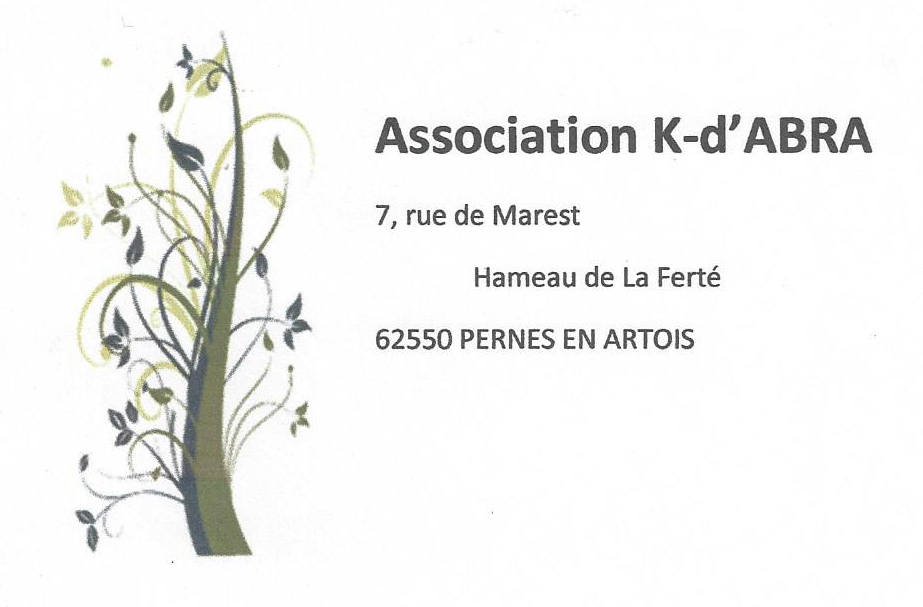
The french k-d’Abra association, in Pernes (Pas-de-Calais in the Hauts-de-France region), carries out social integration actions for families receiving the Income of active solidarity (RSA in France), in particular the development of personal, professional or collective projects. For several years, it has been involved in the implementation of an open recognition system based on Open Badges. The members of K-d’Abra have honoured us with a collective response to this interview. A testimony rich in lessons on the scope of an Open Badges system.
Hello to the entire K-Dabra collective! Can you present your association to the readers of the Newsletter?
Hello to the entire team of Reconnaître – Open Recognition Alliance!
K-d’abra is a non-benefit association. Created in 2007 with the aim of supporting people “in difficulty” in their social and professional integration and thus fight against isolation and discrimination they are often subject to. Our objective has always been to enhance the value of the person, highlighting his or her know-how and interpersonal skills. We always work in a concerted manner with each individual so that they can gain self-confidence, blossom and move forward. Specific support for recipients of minimum social benefits through individual and collective follow-up. In 2013, with the support of the Pas de Calais Department, as part of the innovative projects, we set up the “Saint Pol sur Ternoise knowledge cooperative”, a place, facilitators but above all participants who set up their workshops and lead or co-facilitate them (a place for everyone, run by everyone). This “coopé” revolves around the weekly institutional meeting, which gives room for everyone’s word, where one person equals one voice and where one can feel like a citizen and in action. Cooking, knitting, furniture customisation, oral expression, computer skills, linen sorting and refurbishment… more than 20 workshops have been or are still in action, with the same line of conduct: it is the beneficiary who animates, he shares his competence with the others. Associations have been created as a result of these workshops: LEA (parents and children association which runs specific workshops), Territoires en marche (donkeys, discovery of the territory with walks, asinomediation) and Coop’ci Coop’ca which develops activities of solidarity removals and solidarity shops that give a second life to forgotten objects and clothes.
For some time now, you have been implementing an Open Badges system within your group. How did you discover them?
In connection with the Ligue de l’enseignement of Pas de Calais, members of k-d’ABRA and the cooperative have been invited to participate in a European ERASMUS PLUS project. Thus, the president of K-d’ABRA at the time, Jean Paul went with a beneficiary of the cooperative to Oxford for a few days to discover the Open Badges. Philippe was thus able to be the 1st “Open Badge owner of France” thanks to this trip. He worked with the team in place on the “Iterasinier” badge, which highlights Philippe’s skills in caring for donkeys and guiding them during the rides. Philippe also went a few months later to Sweden to discover the Studies circle. What should be noted is that he had never left the Hauts de France region before this discovery of the Open Badges. Moreover, for those who know Philippe, knows that he is a very introverted person, who speaks very little. This trip was a real adventure in the unknown as were the Open Badges for everyone.
How did you proceed to implement Open Badges in your association? Do you have partners?
To explain it all, this part of the interview was worked on by part of the Open badges group, which has been meeting every Tuesday afternoon for 2 years now. I say a part because this meeting is taking place by videoconference since the March 2019 lockdown due to COVID 19; 25 people participate in the weekly visio; we are usually between 35 and 40 people on average.
Indeed, every Tuesday for the past few years, the group has been meeting and working on the contents of the badge in order to make the best use of each skill, so that everyone can recognize that in a badge there are sometimes quantities of know-how and interpersonal skills. We talk about “criteria” even if the word is not adequate, we haven’t found a better word yet. What competence implies, for example the “iterasinier” badge, highlights the ability to approach the animal, to brush it, to groom it, to feed it properly, to check its comfort, to prepare it for the ride, to make it accept to get into a van, to see the public… and the list goes on and on. The badge is constructed through brainstorming, in the form of Mind Mapping (spider web). Then, the 2nd part is the validation stage of the badge: the criteria are taken up again and the interest of keeping or removing it is discussed, it is then “validated/ stamped”, and then all the peers award the badge to the person who requests it. A badge made for a competence of a participant at time T can be attributed to another person as soon as the competence has been established.
The partners are brought together under two bodies: COTECH (technical committees with the Ligue de l’Enseignement and the “House For All” of Calais) and COPIL (steering committee with the regional, departmental and ESF funders; and the institutional partners who help us to distribute the badge outside and who also allow us to open the badges to all the public).
How have the Open Badges been experienced by members of your association and other relevant audiences?
Corine Delbeck
At the beginning of the Open Badge adventure, I saw the badge as a form of relay, a bridge between social integration and professional integration. However, I had to find the process to make the badge emerge within the group. So I started the first session by presenting the badge as a peer recognition of informal skills; I only had the tools I use on a daily basis and K-d’abra’s philosophy. A group of people, a whiteboard, a pencil, open talk and most importantly the skills of the people. The animation was built around that. We built the 1st badge, with 5 participants; the 2nd with 10 people; the 8th with 15 people. We were not mistaken, the badge “recognizes”. In the participants’ speeches, it’s obvious: “We know how to do all that, it’s crazy!”, “For cassos, we know how to make stuff!”, etc… an involvement, a will to continue to be recognized, it’s also about bluffing and improvising on an explanation of what a badge is. From this was born the little playlet “le zoubibadge” which explains what a badge is, how it is made and what it’s for. The emphasis takes on its full meaning. Everyone creates their own profile to receive their badge and the adventure continues: today with an average of 35 people, with badge ambassadors, with people who leave, with others who integrate…
Manu
“Open badges are the recognition of informal skills recognized by peers. skills that are not recognized by a diploma.”
A badge is worked on in a group on Tuesday for half a day, you choose a topic/badge to work on and you put “criteria” on it and at the end you have it “validated and stamped” and from there the badge is finished and can be entered on the “Open Badge Factory” site.
There are 2 sites, “Open Badge Factory” which allows you to edit the badges to make them available to the public and another site “Open Badge Passport” which is for us, registration is free, it’s our “badge bag”.
Whoever wants a badge asks for it, the person is put in a situation and the peers validate that they have obtained the badge. The badge is then deposited on “factory” and an email is sent to the person so that he can get his badge back on his “passport” profile.
Séverine
“It was created a workshop in the knowledge cooperative on Tuesday afternoon; it is a group of several people who work on the OB by writing criteria that form the OB itself; it is a collective work where each one evokes his opinion.”
“The reception was good, the group has grown over time; from a few people we are now several dozen people”.
During my first session, I was dubious because I was lost in the organization, but as time went by I invested myself to the point of obtaining the OB ambassador badge. The OB brings to my sense of self-worth and self-esteem.
Marjorie
“We work on each person’s skills,” “It’s about building self-esteem and proving that you can do things. “
Nancy
“The group is growing in order to enhance its self-esteem and skills”. When we come back we ask ourselves what and at the end of the session we are enthusiastic and delighted. I really like the form of collective work, it allows us to value ourselves and we regain self-confidence and it allows me to surpass myself. Now I have the happiness of being an ambassador and I spread the information to be able to open a different way of recognition and to use my skills.
Mélanie V
“Knowing other people’s knowledge”, Me, difficult because I didn’t know anyone after I adapted, I didn’t know this openbadge training mode.
Philippe L
FOR ME THE FIRST TIME IT WAS HARD TO UNDERSTAND!
Jacqueline
“My feeling is that I thought I wasn’t going to make it but in the end it’s very constructive and over time, it’s great, you learn a lot.”
Samantha
At the first open badge session, I was lost, I wondered what I was doing there! And I’m still here…
Zoubida
At my first open badge session, it felt good to know that you can be recognized for your abilities without a diploma.
Isabelle V
Well, I’m only going to be part of it today after hearing a lot about it at the RI on Monday. I think it’s a good way to “showcase” our personal skills that are not necessarily known in a job interview or other!
Jérémie
I was tortured at my first session to be an open badge ambassador but I liked the principle and it makes people open instead of reserved (it takes away the shyness and talking
What are, for you and according to you, the beneficial effects brought by the Open Badges? Have they helped to change or boost anything?
Corine Delbeck
An open-mindedness, an enlightenment, a regaining of self-confidence, everyone is recognized and recognizes or re-recognizes themselves. An evolution of the group, of the person. People’s involvement has also increased, showing the beneficial aspects of the badge and recognition.
Hélène
It brings a new value to everyone’s skills
Nancy
The joy of working in a team for the same objective and obtaining a new skill. A well-being for obtaining open badges. The way of working is original and allows to meet people and share the same values.
Isabelle
The regaining of self-confidence and valuing people.
Jacqueline
The beneficial effects are of the recognition of skills to have a badge
Melanie V
Feeling accepted by the group
Manu
OBs allow us to put into words what we know how to do and especially what we didn’t think we knew how to do.
Séverine
The OBs have been rather well received; just look at the enthusiasm they show and all the forums colloquiums they are the subject of; this allows us to travel too and to carry the good word.
Samantha
For me, it’s above all a way to regain my self-confidence!
Hervé
Beneficial effects: recognizing skills and discovering new ones. Knowing that you can do more than you thought you could do
Zoubida
It is a joy to work in a team and to share our knowledge.
Is there anything else you'd like to share with us?
Séverine: The Open Badges helped me regain my self-confidence, to prove to myself that I was capable of doing certain things and then to find a job that I like. It’s true that at the beginning, I felt lonely in OB but I discovered a family of friends with whom we work and with whom we laugh a lot! To give you an idea of what we have to say, we invite you to join us for an OB session; we will be happy to welcome you!
Hervé: The Open Badges are more for me, pride.
Mélanie V: To have met great people.
Manu: Working during the OB sessions allowed me to be more comfortable working in a group.
Nancy: Yes, a positive change! We have a work technique that challenges me and it’s a way to get out of the classic framework and with a good mood. I’ve gotten several badges for myself and thus to spread them on social networks and personal pride.
Manu: OBs are a group work but also individual and digital work via the “Open Badge Passport” website which serves as a “badge bag” and to share our profile on social networks and on a CV.
In light of your individual and collective experience, are there any points of vigilance regarding the implementation and use of Open Badges?
Corine Delbeck
In general, one should not sink into a “badge for a badge”; recognition goes through this and if the badge becomes systematic it may risk losing its recognition value. At K-d’ABRA, we have chosen to recognise skills because you see the justification for requesting badges, we also propose to a person to build him a badge because many have found that he has the skill.
You also have to be careful to use the badge for the competence first and foremost, not for the individual. The creation of the badge must give the person back their confidence, and the distribution of the badge must highlight their competence.
Before completing this original interview, I wanted to thank you on behalf of the team for asking us to participate. We all took great pleasure in answering it as a group during our weekly meeting, with a real investment from each person, both orally and in writing. It’s this collective that brings its open badges to life and it’s initiatives like yours that put us in the spotlight a little more. Thank you
Thank you to all the participants of the K-d’Abra collective!
The openbadges.info team
Open Recognition Alliance News
What is the Open Recognition Alliance?
The Open Recognition Alliance brings together individual and collective actors – all around the world – who want to build an open and learning society, based on the recognition of the talents, skills and aspirations of individuals, communities and territories. Learn more about
Recognition Game
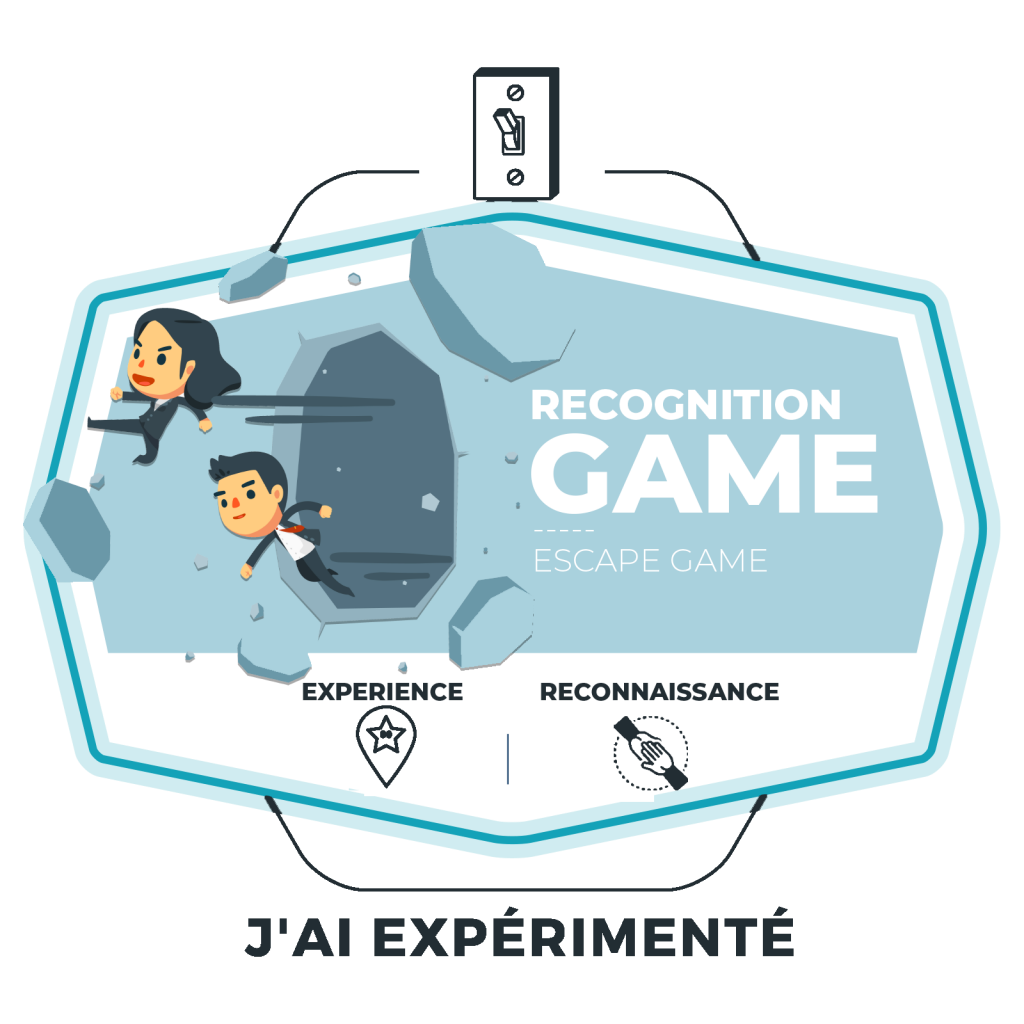
Members of the french branch of the Open Recognition Alliance have designed a Digital Escape Game on the theme of Open Recognition and Open Badges. Actually only available in french, it could be translate in the coming weeks or monthes in english. Stay tuned!
Badge Clinic
This weekly meeting and sharing event on the theme of Open Recognition and the uses of Open Badges, offered in the form of webinars open to all (members and non-members of the Open Recognition Alliance) marks a summer break since the end of june. The Open Badges experts will be available to the community to answer their questions and discuss their issues from September onwards. The Badge Clinic is also equipping itself with new tools, such as its Forum and FAQ, to extend the debates beyond the webinars.
Support the Open Recognition Alliance
Member contributions enable the Open Recognition Alliance to create and make free resources available to the community. Contribute in your turn and support ORA
What's up around the world with Open Badges ?
Making Informal Recognition Visible and Actionnable
On 24th October 2017 in Bologna was launched a 3 years project sponsored by the European Commission: Making Informal Recognition Visible and Actionable (MIRVA). MIRVA was an active participant in the 15th ePIC conference where actors started working on the definition of an Open Recognition Framework. Read more about
Broadening Recognition Initiatives Developing Gender Equity in Sciences
BRIDGES aims at designing, implementing and evaluating Open STEM Ecosystems based on innovative approaches to recognition and accreditation to improve gender equity in the access to STEM education and careers. Learn more about it
Rewarding and Encouraging Clinical Data Research Volunteers at CDISC with Open Badges
CDISC will be using Openbadges.me to deliver a new digital badges program to reward and recognise their global volunteer network. Openbadges.me will help CDISC in recognising the valuable time spent by volunteers in providing clarity in clinical research through developing high quality data standards. Read the article proposed by openbadges.me
Digital Teacher ICT Skills Validation in Rwanda
SkillSafari has been working with the Rwanda Education Board (REB) since 2018 on teacher skills validation with Open Badges. The overall scope of the work has been to examine if badges could work as a supplementary tool in the teacher professional development activities offered by REB. Read the article proposed by Open Badge Factory
Verifying Pharmacy Business Across the USA with Open Badges
The National Association of Boards of Pharmacy (NABP) has adopted the Openbadges.me platform to distribute digital credentials across all 50 states in the USA. NABP will be using Open Badges to verify pharmacy business that meet the highest standards of pharmacy practice.
The LebPass initiative
LEBPASS is a new initiative in Lebanon and the Middle East which aims in helping students and graduates make their skills and qualifications clearly and easily understood in Lebanon, as well as across the Middle East and Europe, thus facilitating the mobility of both learners and workers. LEBPASS Project will unite universities, graduates, employers and other stakeholders for the sake of delivering a Diploma Supplement that could translate the qualifications and skills of students and refugees graduated from Lebanese Higher Education institutions. Read more about
A Comprehensive Learner Record For All
Concentric Sky (makers of Badgr) and the University of North Texas have launched a first-of-its-kind comprehensive digital learner record. This digital transcript allows UNT students to easily track and share the marketable skills they acquire throughout their college experience.
Kony Base Camp Badging Platform Guides App Developers’ Ascent to Certification
The progression of software technology has endless payoffs: It can make the world more productive, more profitable, more healthy, more connected. But when technology advances so quickly that it outpaces the skills necessary to implement it, that’s a problem. In the realm of software technology, such a skills gap can hinder professional opportunities for designers and engineers and hinder innovation for business. Read more about
Events
Let's start cooking Open Badges!
What will learning look like in the future? Therefore the MIRVA partners organise an online event on July 7th where you discover how new technologies like open badges can help to support the ‘informal recognition of informal learning’. This is done with the use of personas in the area of inclusion (getting everyone involved), participation (keeping everyone involved) and engagement (fostering everybody’s talent). Read more about
ePIC 2020 conference
The 18th edition of the ePIC conference will take an exceptional form in this year so particular linked to the health crisis due to COVID-19. The event will take a hybrid form: small local events, online workshops and animations, round tables and presentations. All of its elements, present on all continents, will be broadcast live on the YouTube channel of the association Reconnaître. Lear more about ePIC
Summer of code
A 4-week summer programme in July, that provides Belgian based students the training, network and support necessary to transform open innovation projects into powerful real-world services. See the program
The Open Badge Night
Organised on 3 April from 2 to 11 pm CET live on the YouTube channel of the Open Recognition Alliance, the 2nd edition of the Open Badge Night was a great success. Find the program, the badges created during the Night and the recordings of the interventions on the event’s site and the association’s YouTube channel.
The Badge Summit
This international event brought together some of the world’s brightest and most inspiring opinion leaders in the field of digital badges for highly interactive learning and sharing on 25 and 26 June 2020. The event was organized as an online conference. Read more about
Trainings and workshops
Organisations wishing to communicate on their events, training, workshops and various participations, can – if they are members of the Open Recognition Alliance – send information by e-mail to the following address: contact@openbadges.info.
The following is based on information received from owners of badge creation and issuance platforms.
Open Badge Factory & Passport

- Recent update of the external endorsements that crown the development of OBF and OBP’s endorsement functionalities:
- Gives a higher value to badges issued via OBF and also for selfie-badges.
- RGPD Compliance: individuals providing endorsements will have control over their personal data by having the ability to retrieve or delete their personal information (the data saved as part of the endorsements that are issued).
- Possibility to combine an internal OBP and external endorsement request
- Development of a mobile application (a beta version is currently under test. Delivery of the active version is planned for August) :
- Soon available on Android Market and on the OBP website.
- Free and multilingual application
- Features of the 1.0 version of the App :
- Ability to create an account from the application
- Receipt of badges
- Search for badges on the gallery

- Development of the PRO service level features:
- PDF badge personalization (Fall 2020)
- Development of badge requests (now possible to copy a request)
- Ongoing development of the HR version of Open Badge Factory, OBF Enterprise, the first version of which will be released in early 2021.
- OBF Webinars: Consult the programming on OBF Academy
Badgr
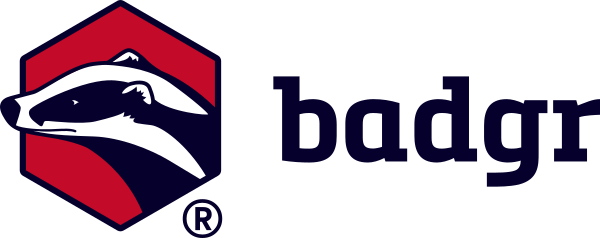
- Free Webinar: New year, new features! Take a deep dive into Badgr Pro and Pathways. Join the Badgr team for a webinar to learn about all the new features they’ve rolled out for 2020. Learn how to use the Organization Dashboard to implement a badging program, see new reporting and analytics features, and discuss ways to implement QR codes to claim badges. The Badgr team will also explore the Canvas LTI and Pathways LTI during this webinar. Learn more about the webinar
- Free Offer: To support distance and asynchronous learning, the Badgr team is offering a free Badgr Pro for Canvas upgrade to eligible instructors. The Badgr team believes that learning and achievement should be recognized wherever and whenever it happens. To support our educators and lifelong learners during this unprecedented time, the Badgr team is augmenting the free Canvas solution by offering Badgr Pro for Canvas features to any educator, free of charge until December 31st, 2020. Learn more about this offer
- Press Release: Concentric Sky (makers of Badgr) and UNT Launch a First-of-Its-Kind Comprehensive Learner Record. This digital transcript will allow learners to showcase their digital badges, representing the skills they have acquired throughout their university experience to professors and potential employers. Read the Press Release
- Badgr is in Microsoft Teams : In-app badges are now available to the Teams user base of over 40 million users worldwide. Read more about
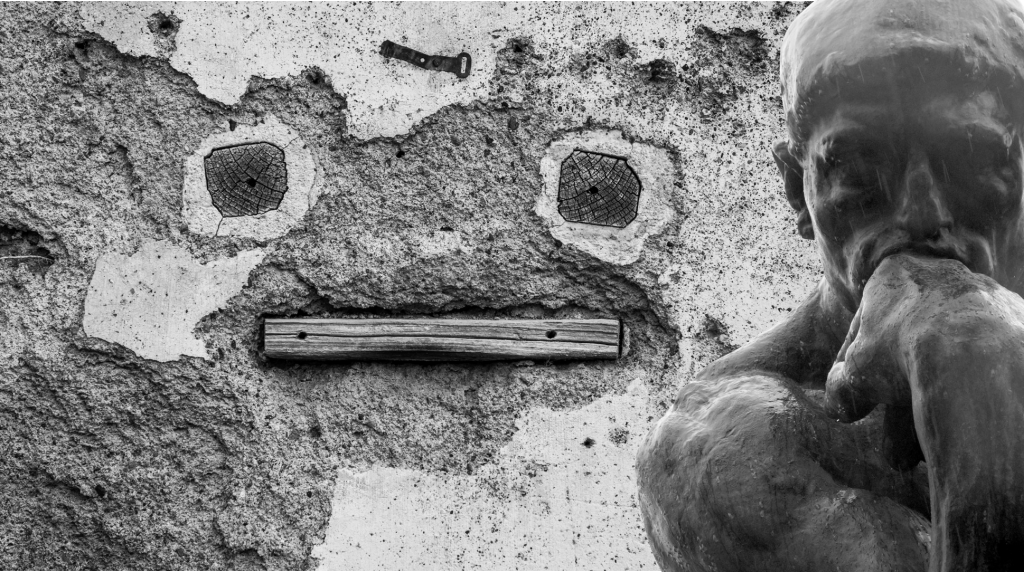
Thinking recognition with Open Badges (french article proposed by Serge Ravet – Open Recognition Alliance) Read the article
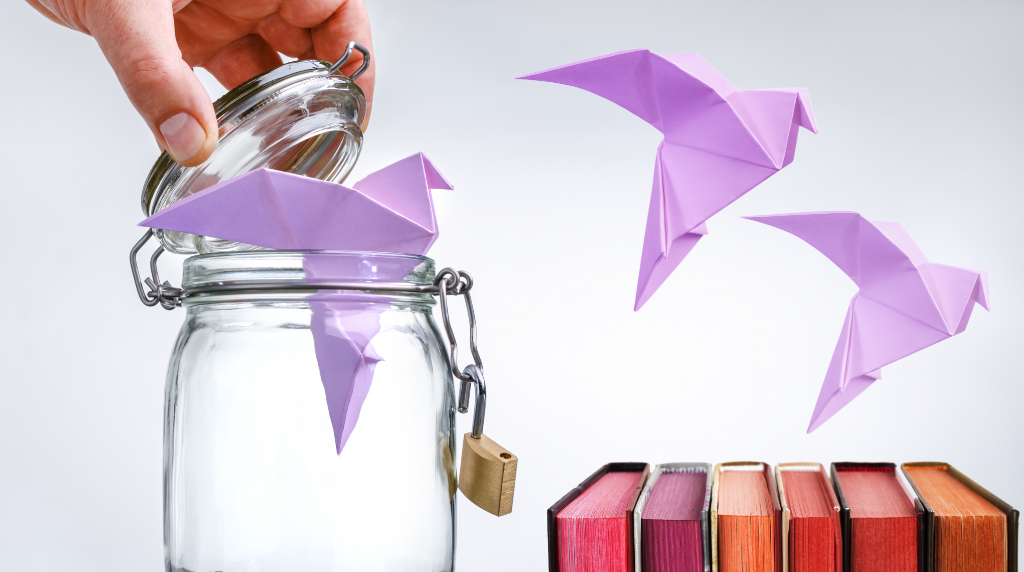
Why decolonising recognition? (Collective and collaborative work) – See the website of the book
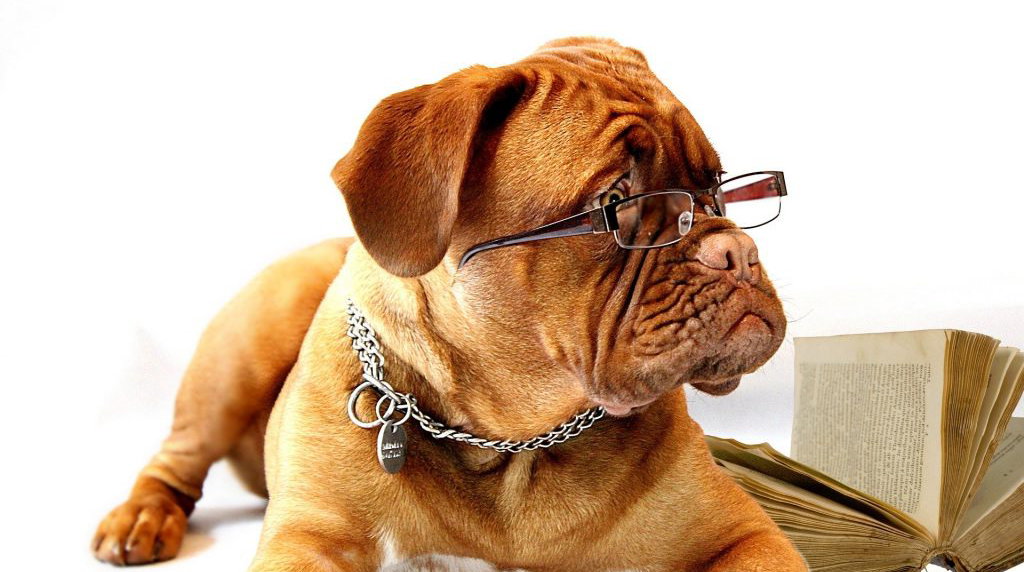
Competency Badges: the tail wagging the dog? (article proposed by Serge Ravet – Open Recognition Alliance) Read the article
